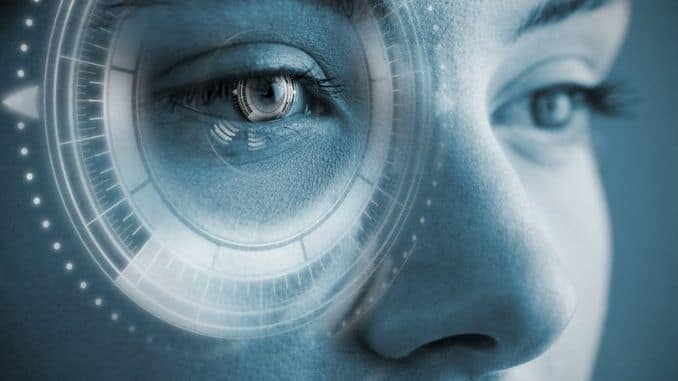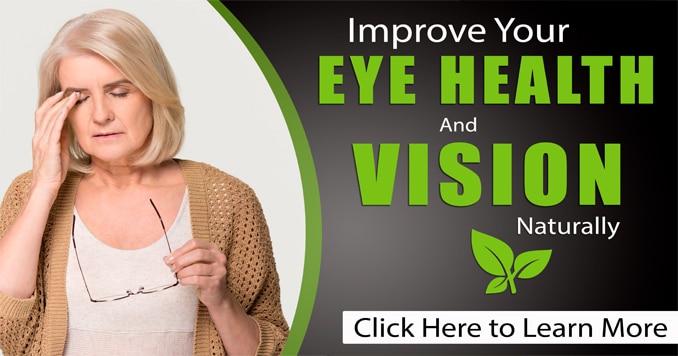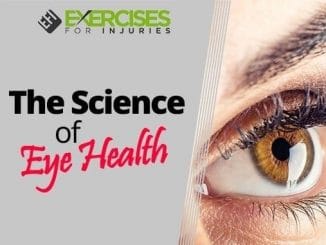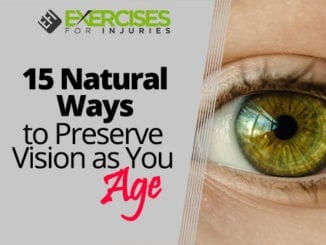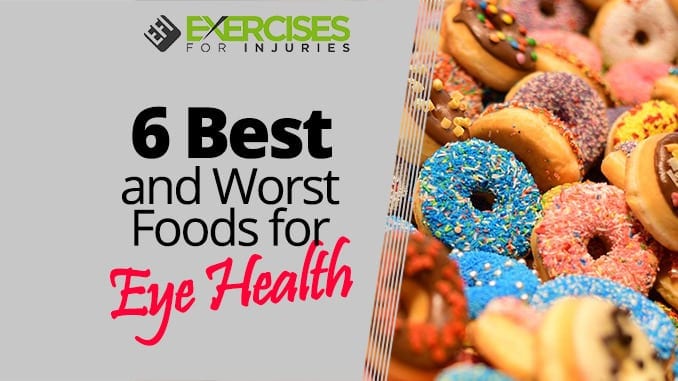
Eye health may not be something that’s making the evening news regularly. Most of us rarely pay much attention to our eyes. In this article, let’s learn about the Best and Worst Foods for Eye Health.
For years, the general belief was that either a person was born with good eyesight or bad eyesight. We also believed that macular degeneration was just a part of getting older. While researchers are still baffled by some aspects of our enigmatic eyes, we’re learning that we have more control over the health of our eyes than we may have previously thought.
Researchers have found that compounds in certain foods can improve eye health while the consumption of other foods can lead to macular degeneration, cataracts, vision loss and similar issues. Read on to discover our list of six best and worst foods for your eye health.
6 Best Foods For Eye Health
It takes more than a few carrots in your weekly diet to keep the eyes happy and healthy. Here’s our list of six more foods that you’ll want to start adding to your grocery cart.
1. Leafy Greens
We know there are a few of you who just love kale. Congratulations to all of the kale crunchers out there as you’re winning the eye health sweepstakes.
Moreover, researchers have found that leafy, deep green vegetables like kale, spinach and collard greens are packed with a carotenoid called zeaxanthin. This particular carotenoid exists in green leafy plants to modulate light energy during photosynthesis.
Food scientists are finding that dietary zeaxanthin may help modulate light energy within the central retinas of human eyes. If you tend to sense pain in your eyes from bright lights, consider adding more deep green vegetables to your diet. Aim for about a pound of deep greens during a week for best results.
2. Zucchini
Another food that’s excellent for eye health is zucchini. It’s in the summer squash family, and it’s a great source of dietary lutein.
Lutein is another carotenoid that is necessary for optimum retinal health. However, lutein is believed to affect the area of the retina that provides peripheral vision. Peripheral vision is the ability to focus on an item, straight ahead, and still be able to identify items to the right or left of your focus.
If you have trouble with peripheral vision, or you think yours is declining, consider adding more lutein-rich foods to your diet. A double serving of sauteed zucchini slices with dinner, two or three times a week, will likely help improve your peripheral vision.
3. Eggs
Once vilified by old-school practitioners and classified as pure junk food, the humble chicken egg has dusted off its bad reputation and is making a nutritional comeback. Egg yolks, as it turns out, are another rich source of lutein. Have an egg or two for breakfast to help protect and nourish your eyes.
4. Red Peppers And Paprika
Another way to add the aforementioned carotenoid, zeaxanthin, to your diet is to eat red bell peppers. Bright red peppers are full of zeaxanthin. Try slicing these sweet red peppers and serving them with hummus or add them into stir-fry dishes. If you aren’t a big fan of munching on red bell peppers, use paprika in your food preparations instead. Paprika is made from red bell peppers and contains high levels of zeaxanthin as well.
5. Seafood
Do you have dry eyes? If so, eating coldwater oceanic fish like sardines, tuna, salmon and mackerel can help. Coldwater oceanic fish are rich in docosahexaenoic acid (DHA), an omega-3 fatty acid. The folks over at the American Academy of Ophthalmology recommend adding DHA to the diet as an alternative to artificial tears.
Do you need another reason to eat a bunch of oily fish? How about better retinal function? One 60-year-old man shared his encouraging testimony to the benefits of DHA. He reported that after four months of incorporating DHA into his diet to help his arthritis, he discovered that he was able to ditch his 3.5 magnification strength reading glasses for a pair of 2.0 strength glasses. He added that he only realized the DHA was helping his vision when he was able to read regular-sized printed words for the first time in years.
Research confirms the anecdotal reports as well. Recent studies have shown that dietary DHA protects the eyes against oxidative damage and promotes better retinal health. Two or three servings of cold-water fish a week should help protect your eyes, moisturize them and possibly improve your vision.
When it comes to oysters, we’ve all heard about oysters being the one true aphrodisiac food. We aren’t sure if that’s a fact or merely a legend. However, researchers have found that just one oyster can provide all of the dietary zinc a person needs daily. Eating oysters could be a very sexy way to boost your eye health.
Why do the eyes need zinc from oysters? Human eyes continually produce pigmentation in the retina. A decline in pigmentation can result in poor central vision. Zinc helps to ensure the eyes are producing enough pigment in the retina, thus strengthening our sight.
6. Guava
Among other valuable vitamins and minerals, guava is extremely rich in vitamin C. While citrus fruits are well known for containing vitamin C, you’d have to eat three oranges to get the amount of vitamin C you’ll find in just one, medium-sized guava fruit.
According to research conducted by the American Optometric Association (AOA), a diet high in vitamin C can lower your risk of developing cloudy eyes or cataracts. Cataracts is a serious condition that can cause blurred vision, difficulty in discerning colors, halos around bright lights and light sensitivity. The AOA also found that adding foods with high amounts of vitamin C can slow the progression of age-related macular degeneration.
Often, you can find fresh guava in supermarkets and farmers’ markets. However, if you aren’t in an area where they’re abundant, try looking in the frozen foods section of the grocery store and the canned fruit aisle. Eating guava and other foods rich in vitamin C, each day, can greatly boost the health of your eyes.
6 Worst Foods For Eye Health
In the Western world, age-related macular degeneration is currently the leading cause of blindness in people age 55 and older. The AOA expects that the number of people struggling with age-related macular degeneration will triple by the year 2025. Despite that somber prediction, there is hope in the form of excellent nutrition. We’ve found six foods that are especially bad for the health of your eyes. Avoiding these foods will help you reduce your chances of developing macular degeneration, cataracts, night blindness and other ocular ailments.
Keep in mind that many of the following foods are fine to have once in a while. It’s the habitual and excessive consumption of the foods on this list that can get you into trouble with your eyes.
1. Baked Potatoes
We hate to put a vegetable on our list of worst foods for eye health. Potatoes aren’t bad foods in moderation. However, if you’re prone to macular degeneration, eating baked potatoes more than once a week could aggravate the breakdown of your eyes. Experts think baked potatoes are hard on your eyes because of their high glycemic index.
The American Journal of Clinical Nutrition put out a study showing that foods with a high glycemic index may contribute to the progression of age-related macular degeneration. Harvard Medical School estimates that an average-sized baked russet potato carries a glycemic index of 111. For the sake of comparison, a serving of cooked carrots has a glycemic index of 39. Choose other vegetables most of the time to protect your eyes.
2. Donuts
Donuts are simply off-limits when you’re trying to maintain good eye health. First of all, they have a high glycemic index. A simple glazed donut carries a 79 on the glycemic index. Secondly, donuts are often fried in vegetable shortening, which contains trans fats.
Trans fats raise the body’s triglyceride levels. When triglycerides are high, fat is deposited into arteries throughout the body. The delicate arteries in the eyes are easily damaged when triglyceride levels are high. It’s best to avoid donuts entirely to ensure your triglycerides are at optimal levels and the arteries in your eyes aren’t weakened.
3. Shortening And Margarine
As we mentioned above, it’s wise to eliminate foods that are fried in shortening from your diet. But don’t buy shortening either. When a recipe calls for vegetable shortening, replace it with coconut oil.
Margarine is another food that typically contains hydrogenated oils or trans fats. Toss it out. Opt for a mashed avocado on your toast instead of a smear of margarine. Substitute other healthy oils in place of trans-fat rich margarine.
4. Sugar
Like potatoes and donuts, sugar raises the glycemic index of anything it is added to. Some of the main culprits include pastries, cereal, candy, and sweetened drinks. This includes sodas, fruit juices, energy drinks, and everyday favorites like coffee and sweet tea. Studies show that people with diets high in sugar and similar sweeteners like high-fructose corn syrup typically suffer from more vision problems than those who use sugar in moderation.
5. Red Meat
Scientists at the Centre for Eye Research in Melbourne, Australia, studied the link between red meat and age-related macular degeneration. They took 13 years to conduct the study with more than 5,000 middle-aged participants. The researchers found that individuals who ate a diet high in red meat are more likely to suffer from age-related macular degeneration than meat eaters who consumed chicken or other proteins. In fact, the study shows that the risk of blindness is increased by half for heavy red meat eaters.
6. Extra Cups Of Coffee
Don’t panic — no one is saying you can’t ever drink coffee. But, researchers published a study in The Association for Research in Vision and Ophthalmology finding that study participants who drank more than three cups of strong, caffeinated coffee each day, were at a higher risk of developing exfoliation glaucoma, which leads to blindness.
A cup or two of coffee or tea should help you wake up. Try to steer clear of crossing into the three-cup a day habit for the sake of your eyes.
In the mid-1800s, American poet Ralph Waldo Emerson wrote, “The eyes indicate the antiquity of the soul.” And while we understand that Emerson probably wasn’t referring to age-related macular degeneration, his words were physiologically accurate. Our eyes say a lot about us — they particularly show our antiquity.
Take measures to protect the antiquity of your eyes by choosing smart, nutritionally balanced foods and avoiding foods (and drinks) that have been proven to cause eye problems.
If you want to cook tasty meals that promote and encourage eye health, then check out the EFI Cookbook – Cooking For Eye Health, here!

